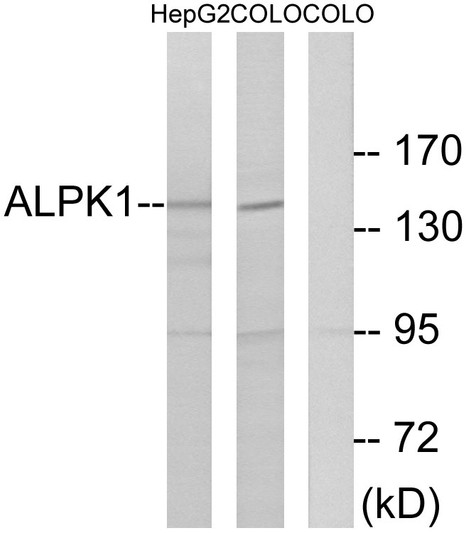| Function | Serine/threonine-protein kinase that detects bacterial pathogen-associated molecular pattern metabolites (PAMPs) and initiates an innate immune response, a critical step for pathogen elimination and engagement of adaptive immunity. Specifically recognizes and binds ADP-D-glycero-beta-D-manno-heptose (ADP-Heptose), a potent PAMP present in all Gram-negative and some Gram-positive bacteria. ADP-Heptose-binding stimulates its kinase activity to phosphorylate and activate TIFA, triggering pro-inflammatory NF-kappa-B signaling. May be involved in monosodium urate monohydrate (MSU)-induced inflammation by mediating phosphorylation of unconventional myosin MYO9A. May also play a role in apical protein transport by mediating phosphorylation of unconventional myosin MYO1A. May play a role in ciliogenesis. |
| Protein Name | Alpha-Protein Kinase 1Chromosome 4 KinaseLymphocyte Alpha-Protein Kinase |
| Database Links | Reactome: R-HSA-445989Reactome: R-HSA-9645460 |
| Cellular Localisation | CytoplasmCytosolCytoskeletonSpindle PoleMicrotubule Organizing CenterCentrosomeCell ProjectionCiliumLocalized At The Base Of Primary Cilia |
| Alternative Antibody Names | Anti-Alpha-Protein Kinase 1 antibodyAnti-Chromosome 4 Kinase antibodyAnti-Lymphocyte Alpha-Protein Kinase antibodyAnti-ALPK1 antibodyAnti-KIAA1527 antibodyAnti-LAK antibody |
Information sourced from Uniprot.org











